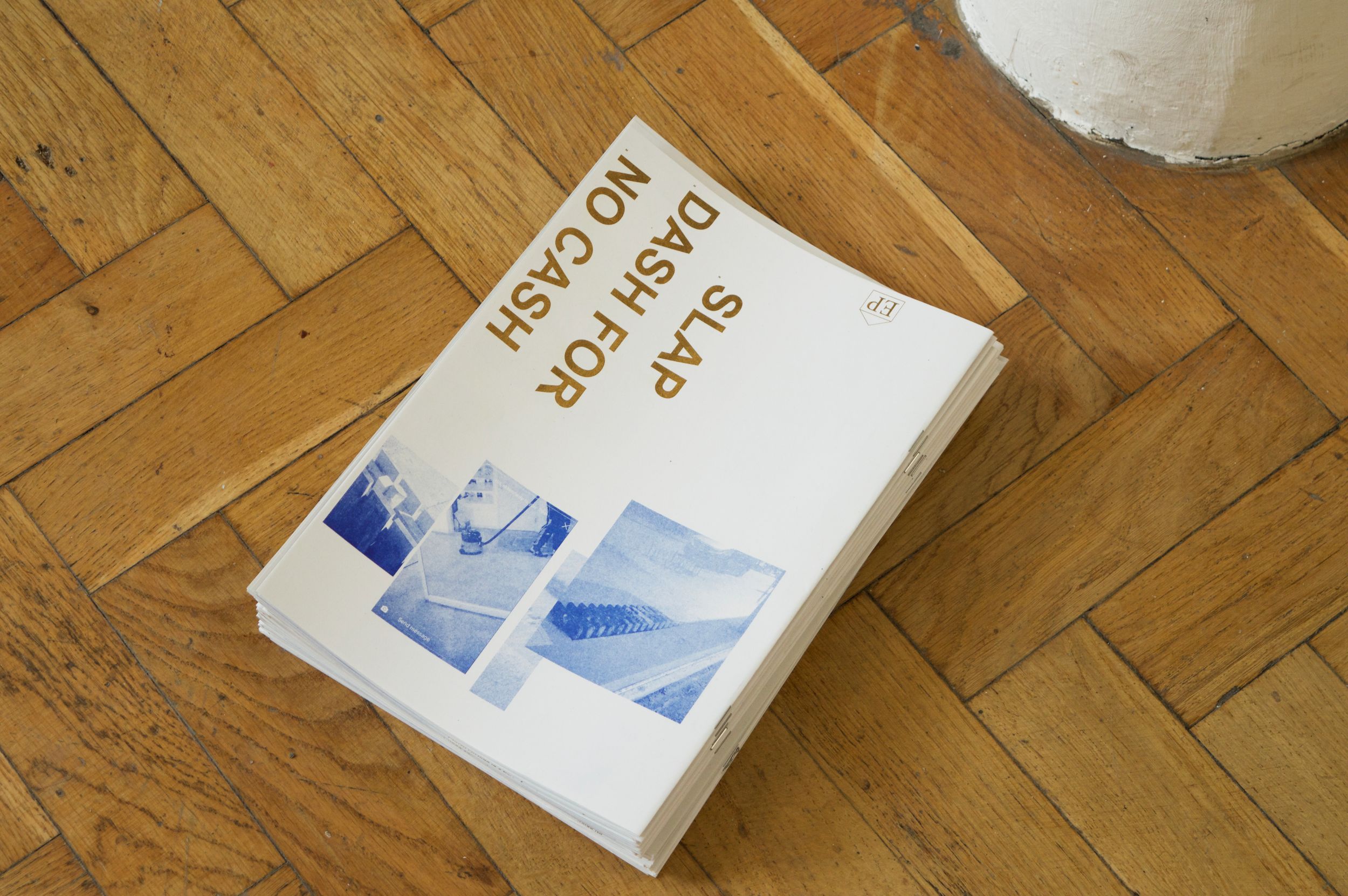Catalogue Essay
‘Technological Disobedience’
in Slap Dash for No Cash
Elam Publishing, London
Slap Dash for No Cash was published on the occasion of the group exhibition of the same name at Art Academy Newington, London (7 - 9 September 2018)
The publication was conceived to supplement the exhibition’s focus on artist practices that forground their own means of production. It was two-way risograph colour printed in blue and gold and featured WIP images and source material from each exhbiting artist.
The publication featured the exhibition press release as well as a short essay, ‘Technological Disobedience’, in which I explored the cultural history of Fidel Castro’s response to ‘The Special Period in Time of Peace’—an era of profound economic crisis in Cuba following the dissolution of the Soviet Union, and the ingenious ways its citizens made do and got by.

Edition of 50
Designed by Stephen Dalley
Produced by Lewis Henderson & Charlie Mills
Published by Elam Publishing
Printed in London, 2018
︎︎︎Exhibition Images
︎︎︎Publication PDF
Designed by Stephen Dalley
Produced by Lewis Henderson & Charlie Mills
Published by Elam Publishing
Printed in London, 2018
︎︎︎Exhibition Images
︎︎︎Publication PDF

Extract —
“In acknowledgement of the looming economic crisis, the Cuban government published a book called El libro de la familia (1991) (The Book of the Family): a DIY survival guide for Cuban citizens in a time of great material chastity. The book was filled with nifty and thrifty ways to repurpose broken electrics, homebrew car fuel, create make-shift television antennas or prepare your very own grapefruit steak. It was an example of ‘making do and getting by’ taken to the level of an entire nation-state. In under a year, there was another state publication, this time called Con Nuestros Propios Esfuerzos (1992) (‘With Our Own Efforts’). Another DIY toolkit for surviving under harsh material and economic constraints, this time it was a compilation of the population’s own ingenious and autodidactic schemes for repurposing objects to fantastic new ends. A state-sponsored guide to break, take apart and reconfigure objects into a novel universe of things; an official black market of motorized tandem bikes, beer-cans-turn-mop-heads, washing-machine shoe shiners and plug-in hearing aids.
Around 1994 – 1995, the Cuban artist Ernesto Oroza began a life-long project devoted to documenting and exhibiting these objects, fascinated by their grassroot ingenuity. Naming the project ‘Technological Disobedience’, Oroza traversed the country in search of new objects, discovering a multitude of national and regional variants along the way. His exhibitions were and continue to be a poignant representation of Cuban resilience in the face of economic austerity, the preservation of national identity under influence of external cultural powers, and the collaborative solidarity that emerges when faced with simple communal needs. In contrast, Walter Benjamin once wrote that capitalism is “a purely cultic religion, perhaps the most extremely cultic that ever existed.” Under capitalism, subjects are told to ‘have faith’. They are told to devolve their social and technical challenges to an anonymous clergy of technocrats and corporations. They are actively prevented from engaging in the means of production and its produce. Instead, subjects navigate a set of pre-established codes, engaging with objects through fetish. Unlike in Cuba, the world under capitalism is theological state: it is mystified, religious.”